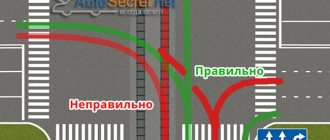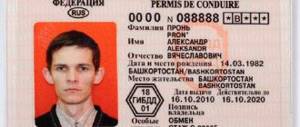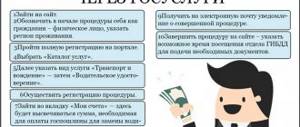Types of bribes
The first thing you need to understand is what a bribe is. Articles 290, 291 of the Criminal Code of Russia have a complete definition of the concept.
The following operation has the main characteristics of a bribe:
- Material benefit to the recipient. Cash or other material assets are transferred to the employee personally or through an intermediary.
- Providing a service that is related to the official duties of a person.
- Receipt of benefits by the person who gives the bribe.
The proposed remuneration for the action of a traffic police officer or his inaction is divided depending on the amount. The penalty increases in accordance with the amount of remuneration transferred.
There are 4 types identified by the Criminal Code of the Russian Federation:
- Up to 25,000 rubles;
- From 25,000 to 150,000 rubles;
- From 150,000 to 1,000,000 rubles;
- Over 1,000,000 rubles.
This gradation affects the punishment for giving a bribe to an employee when both participants are committing a crime. It does not matter in what currency the reward is received. This can be Russian rubles or foreign currency. A bribe can also take the form of material assets, securities and other forms.
Ways to combat incitement
Car owners often become “victims” of traffic police inspectors, who extort a bribe through their actions. They take steps to force the person to resolve the issue in a “different” way. In practice, the following methods are used to persuade a person to give money:
- slowness in completing the protocol
- light threats
- an indication of the possible consequences of the violation (the problem is greatly exaggerated)
If the driver is in a hurry or is afraid of future consequences, he will inevitably offer to “resolve the issue” without drawing up a protocol. The “good cop/bad cop” tactic is often used. In this case, one traffic police officer plays the role of a strict peace officer who complies with the law, and the second recommends not to take risks and give a certain amount to “resolve the issue.”
To protect yourself from incitement, you must:
- Take out your phone and record what is happening. If you have a video camera, you can use it. In the future, the resulting video may be useful in a judicial body as evidence of innocence. If the inspector demands to turn off the recording, you need to refer to the Law “On the Police”. Paragraph 5 states that the driver has the right to film the actions of a traffic police officer.
- Do not go to the inspector to communicate in the car. In this case, there are no witnesses, so it is easier for the traffic police officer to put pressure on the driver and demand money. According to current legislation, a car owner must get into a police car in two cases - detention or arrest in compliance with the law.
- Write down the information of the traffic police officer who demanded the bribe (full name, badge number and other information).
- Contact the personal safety department by dialing the helpline number.
In most cases, it is enough to take out the camera to discourage the inspector from “squeezing out” money.
Attempted bribery
Drivers often take the initiative to “solve the problem on the spot.” Some offer rewards for inaction or a specific action of an employee, without suggesting that even the fact of offering a bribe is punishable by law.
Dear reader! Didn't receive an answer to your question? Our expert lawyers work for you. It's absolutely free!
- Moscow ext 152
- St. Petersburg ext 152
- All regions ext 132 (Toll free)
The Criminal Code contains the concept of “attempted bribery.” It assumes a situation where the transfer of a bribe did not take place due to reasons beyond the control of the bribe giver. In this case, the court may hold the driver liable for the equivalent of bribery.
To make an accusation, the traffic police officer must provide significant evidence. Often these are recordings from a DVR. If it is absent, there will be testimony.
Ways to prove the guilt of the driver or inspector
A motorist can be caught giving a bribe by:
- video recording of a conversation with an inspector;
- witness statements;
- photo and audio materials of the conversation between the parties.
If the service officer turns out to be honest, he has the right to draw up a report on the attempt to bribe him right at the place where the vehicle was stopped and add evidence to it during the trial of the case.
It is more difficult to confirm the extortion of money by an inspector, since dishonest police officers do not make direct demands and do not take banknotes or an envelope in their hands. A video recorder or audio recording device will help you obtain evidence.
To be able to use them, the driver should not change into a traffic police car to talk. It is better to talk near your car and in front of witnesses. It is also necessary to immediately find out the employee’s name, rank, and badge number immediately after stopping the vehicle, so that you can contact the CSS if he demands money.
More on AutoLex.Net:
"The most humane court in the world"
Punishment for giving a bribe to a traffic police officer
If the fact of transfer of remuneration that meets the definition of a bribe is recorded to an employee during execution, both participants in the incident will be punished in accordance with the law. The Criminal Code of the Russian Federation provides for penalties and imprisonment depending on the size of the bribe given and received:
- A bribe of up to 25 thousand rubles involves payment to the budget 15-30 times the bribe / compulsory correctional labor for a period of 1 to 3 years / imprisonment for a period of 1 to 3 years and a fine in the amount 10 times greater than reward. Thus, if a driver gave a bribe in the amount of 1,000 rubles, he will have to pay a fine in the amount of 15,000 to 30,000 rubles or be in custody and pay 10,000 rubles to the budget.
- A bribe from 25 to 150 thousand rubles is punishable by a fine 20-40 times higher than the bribe / imprisonment from 1 to 3 years with a fine 15 times higher than the reward.
- A bribe of 150 thousand to 1 million rubles implies more serious consequences. A person who transferred money or material assets to a traffic police officer will pay a fine of 60-80 times the bribe and will remain in custody for 1-3 years, or pay a fine of 60 times the bribe and will stay in prison from 5 to 10 years.
- A bribe of 1 million rubles will have very serious consequences. The fine for a crime exceeds the amount of a bribe by 70-90 times with imprisonment for 1-3 years. Or 70 times the fine with imprisonment for 7-12 years.
With simple arithmetic operations you can calculate how a seemingly innocuously resolved issue will turn out. Punishments for corruption are becoming tougher every year. Therefore, it is safer and more profitable for the driver to resolve issues legally.
○ Responsibility of the vehicle owner.
But let the inspector himself be concerned about the problems that arise if he accepts a bribe. What awaits the motorist?
And here the criminal law reports extremely sad consequences. Art. 291 of the Criminal Code of the Russian Federation states the following:
- For giving a small bribe - from a fine of up to 500 thousand rubles to imprisonment for up to 2 years.
- For a dacha in a significant amount - from a fine of up to a million to imprisonment for 5 years.
- On a large scale – from a fine of no less than 1 and no more than 3 million to imprisonment from 7 to 12 years.
- On an especially large scale – a fine of at least 2 and a maximum of 4 million rubles or imprisonment from 8 to 15 years.
- If a bribe was given for knowingly illegal actions of an inspector - from a fine of up to one and a half million to imprisonment for up to 8 years.
As in the case of taking a bribe, imprisonment can be combined with a fine and deprivation of rights. The size of the bribe is calculated in the same way as in the case of receiving it.
Even if you do not give a bribe yourself, but act only as an intermediary, this is a crime under Art. 291.1 of the Criminal Code of the Russian Federation. The punishment here also depends on the size of the bribe and ranges from a fine of at least 700 thousand rubles to imprisonment for 12 years.
What to do if a traffic police officer hints at a bribe?
In some situations, a traffic police officer shows with all his appearance that he is not against making money dishonestly. He details the disadvantages of making the offense official. Some drivers do not know how to behave in such a situation, so they follow the lead of an unscrupulous employee.
It is important to understand that such behavior by an employee may be regarded in court as incitement. In this case, even if the bribe is transferred, the driver will be able to avoid liability.
How to behave when an employee demands a reward:
- Refuse to pay. You can easily find the reason. I don't have any cash with me, for example.
- Record a conversation or transfer of a bribe on video. Recording the process will help the driver defend his rights in case of litigation. If immediately after transferring the money the driver reports to the prosecutor's office and actively assists in solving the crime, there is a chance to avoid punishment.
- Record the conversation on a voice recorder. When you can’t use the camera, you can record the inspector’s words in audio format. Ask him to show his ID and read the employee’s details on the record. To prevent instigation on the part of the inspector, you can inform about the recording.
- Write a statement to the prosecutor's office or the CSS. Timely filing of an application or calling 02 will protect the driver from the consequences of an offense.
The entire situation can be prevented by following traffic rules.
A responsible driver does not exceed the permissible speed limit, allows pedestrians to pass, and avoids situations where not only he, but also all road users are at risk. He must understand all the responsibilities he takes when driving a vehicle. What will be the bribe for a traffic cop?
How they avoid responsibility for offering money
The law leaves room for the bribe-giver to avoid punishment. It is indicated in the Note to Article 291 of the Criminal Code:
A person who gave a bribe is exempt from criminal liability if he actively contributed to the disclosure and (or) investigation of a crime and either there was extortion of a bribe from an official against him, or the person, after committing a crime, voluntarily reported to the body that has the right to initiate a criminal case , about giving a bribe.
Those who are trying to pay off a traffic police inspector should know that the transfer of money can be secretly monitored by members of their own security service. And if a motorist drops an envelope in a traffic police car or in an area not visible by a video recorder, he will be made guilty, and the dishonest inspector will remain “clean.” Therefore, you should not meekly agree to pay, much less offer a bribe in exchange for the absence of a protocol on the violation.
What types of bribery situations may exist on the “road”?
There are two types of bribes to traffic police officers, one of them is the offer of a bribe to the inspector by the violator, and the second is extortion of remuneration from the official . Let's take a little look at both types.
Extortion by an inspector
Traffic police officers themselves often push violators to give them a bribe. In this case, you need to be very careful. They do not name the amount, but do their best to hint at a quick solution to the problem.
Traffic police officers themselves often push violators to give them a bribe.
It’s not uncommon to see an interesting deception scheme when two officers stop someone and start playing bad and good cop. One fills out the appropriate forms, colorfully describing a lot of violations, and the second is kinder and offers to help, that is, he will come to an agreement with his partner, but he will have to pay for it.
Of course, many drivers will get confused and do just that; in fact, it would be cheaper to pay the fine. You need to be careful and be able to avoid manipulation by traffic police officers; try to follow the following rules:
- Use a video camera. You can film everything that happens so you can use it as evidence later. Filming does not have to be hidden, since the Law “On the Police” in Article No. 8 allows recording the work of traffic police officers. If your camera is taken away by force or prohibited from filming, this can easily be regarded as a violation of federal law.
- Don't be tempted by traffic cops to get into the car with them. You will be alone there and it is unlikely that you will be able to resist their pressure. The only reason you need to get into the car is if you are under arrest; in other cases, you have the right to refuse.
- If a traffic police officer nevertheless took a bribe, committing provocations, pushing you to solve everything faster, try to remember as much information about him as possible, then you can call the traffic police hotline and tell him everything.
Any driver has ever faced or will face extortion or pressure from traffic cops, you need to be prepared for this, at the same time be aware of the responsibility for a bribe and think about the possible consequences.
Proposal to the inspector
Drivers also like to be the first to take the initiative to resolve an issue quickly. After all, who wants to wait until all the protocols are filled out, and then you still need to pay a fine, it’s much easier to give a certain amount of money and move on.
Not every car owner understands that there can be serious consequences for this, including imprisonment for up to 15 years .










